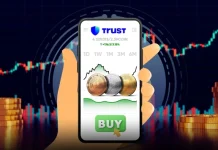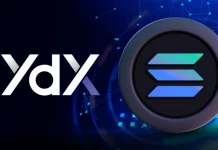
GAO, an acronym for Government Accountability Officer, has said that inconsistencies must be addressed. At the same time, the Federal Reserve and the US Securities & Exchange Commission (SEC) have made progress on digital assets. This largely pertains to identifying risks and challenges in blockchain-related products and services. GAO has stated that both agencies must collaborate better and enhance their pace.
GAO’s recommendation has seen a minor pushback from the Fed. It is not necessarily a complete disapproval but rather a clarification of the work. The Fed has said they routinely engage with other financial regulators, adding that the task often involves identifying emerging risks in the sector. GAO continues reiterating that planning should be confined to the Digital Asset Working Group.
GAO has further stated that it is essential to identify risks that are linked with products and services on blockchain.
The SEC has also come forward in its defense. The agency has stated that it does work in association with the Financial Stability Oversight Council and other international bodies. Tasks center around looking for crypto-related risks. The Commission has further stated that FSOC has established a coordination mechanism within the working group. They also meet regularly to discuss various topics like rule-making, regulatory developments, and data collection.
GAO has suggested that planning can still include more elements like objectives plus frequency, identification process, and manner of responding to risks and challenges. Needless to say, this must happen within a defined timeframe. GAO has also highlighted another priority: finalizing a written communication giving banks directives about appropriately utilizing alternative data in the underwriting process.
The development comes when one crypto-related product has entered the market, and another aims to join in the coming days. Spot Bitcoin ETF is active, while Ether ETF is waiting to get a green light on the registration forms. That would enable traders and investors to engage with the product on any exchange platform. Ether ETF has secured approval of 19b-4 by the SEC.
Spot Bitcoin ETF made its way into the market in early January this year.
Approvals on Ether ETF would pave the way for more crypto ETFs like SOL and XRP, among others. GAO is, therefore, seeking better coordination within the departments—primarily to ensure that investors are safe as the market sees the rise of crypto-based products.
The SEC and the Federal Reserve have better coordinated with other relevant departments. GAO is more likely to pitch more recommendations in the coming days. The objective is to safeguard blockchain-related products and services as they gain momentum in the mainstream market.
Such measures signal the rising adoption of blockchain-based innovation in every sector, especially finance, where crypto-backed ETFs are making waves.










